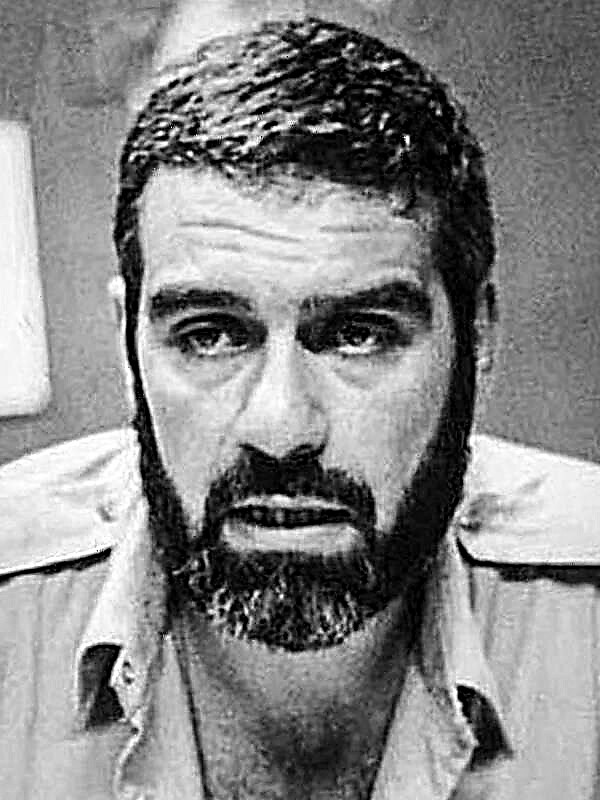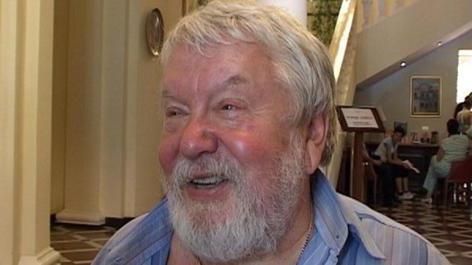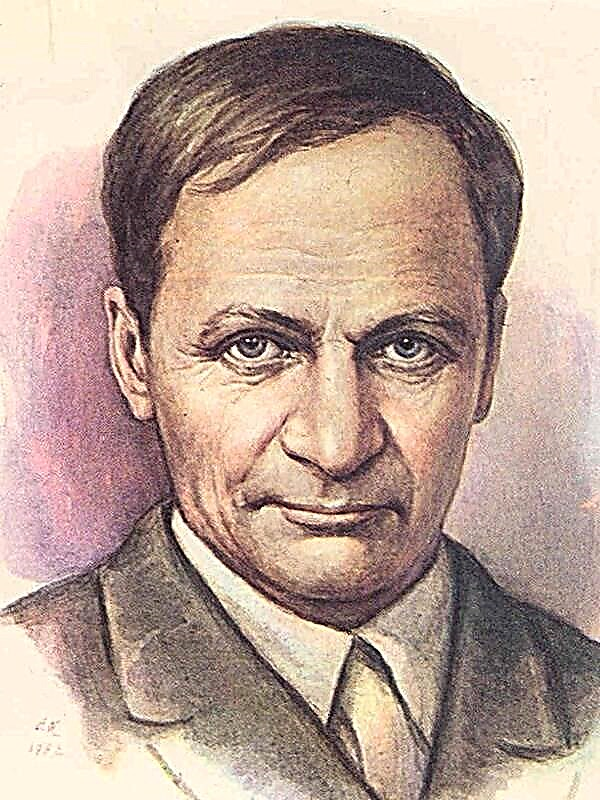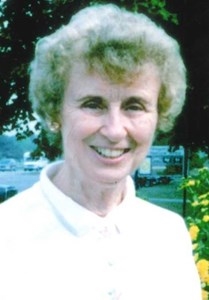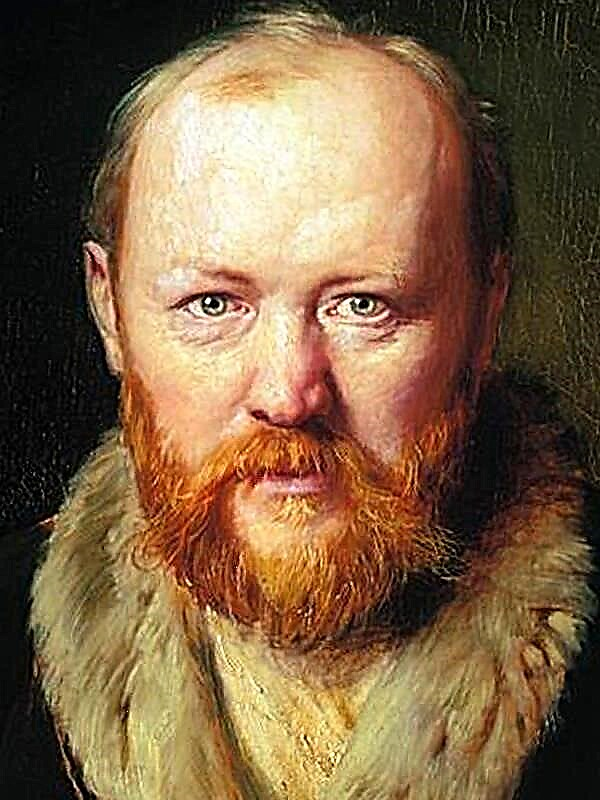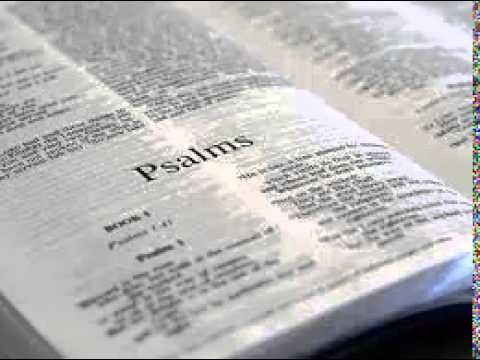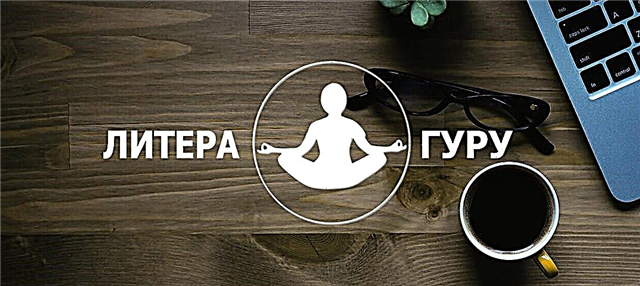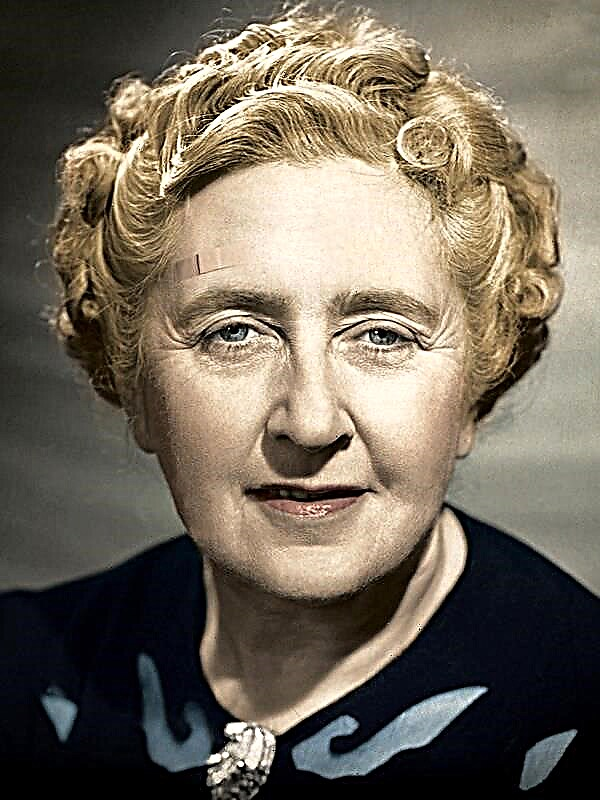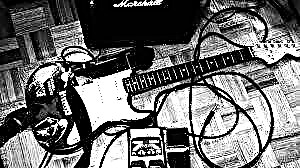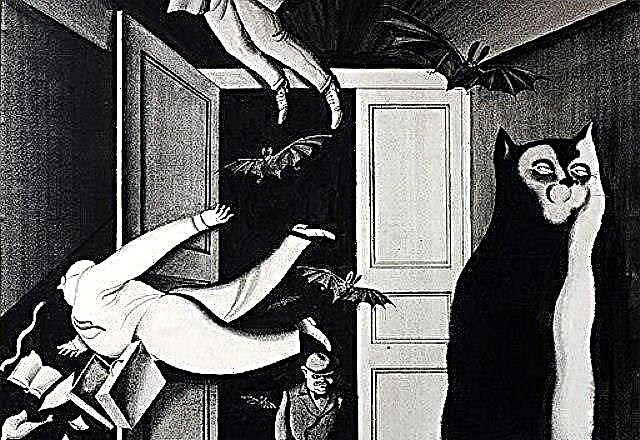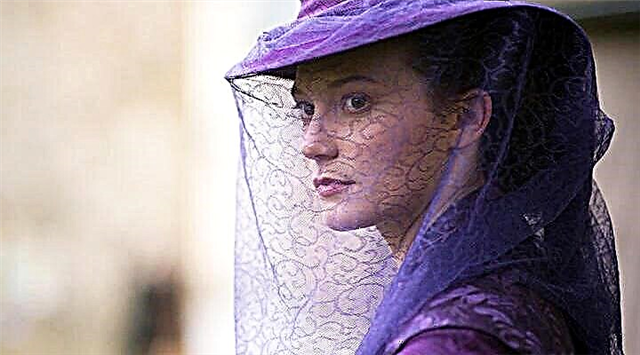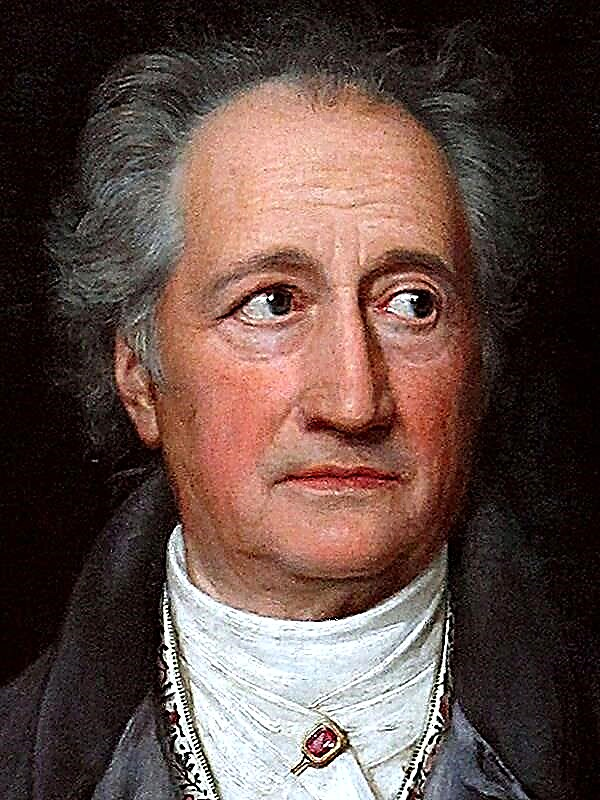The action takes place in the vicinity of the cities of Vilno and Grodno, in estates and villages located above the Neman. Recently, in 1863, the January uprising was crushed. The tsarist government seeks to deprive the Poles of the opportunity to consider these lands their own. The estates of large landowners are confiscated in the state (Russian) treasury; according to the legislation of that time, Poles did not have the right to acquire land on the eastern outskirts of former Poland. The land on which the Pole could not stay (including due to inept management) passed into Russian hands. Therefore, the inept handling of land was considered by the patriots as a betrayal of national interests.
The novel opens with a picture of a summer holiday. "Everything in the world shone, blossomed, smelled and sang." Together with other women, Justin and Martha return from the church. They walk to the estate of Korchin. Martha is about fifty, she is the cousin of the estate owner and in the house is acting as a housekeeper. Justine is about twenty, her mother, the owner’s sister, has died, Justina lives on the rights of a poor relative in the estate with her father. He is a musician: composer and violinist, and at the same time a glutton and voluptuous man who sees nothing beyond his violin. On the way, they are overtaken by a wagon heading to the estate: neighbor Kirlo and her new acquaintance, the wealthy landowner Theofil Ruzhyts, who had just returned from abroad, where he squandered most of his fortune and became a morphist, drive into it. The beauty of Justina makes a strong impression on him. Then the cart passes, where the girls in elegant clothes are sitting - the horses are controlled by Yanek Bogatyrovich, a low-land gentry; he sings very well. Ian also admires the beauty of Justina.
The Korchin estate belongs to Benedict Korchinsky. By hard work, he asserts his right to live and be happy in his native land, above the Neman. The house on the estate, the garden surrounding it - everything keeps a memory of national traditions. Mrs. Emilia, the wife of Korchinsky, does not sympathize with her husband and does not help him. She despises him for his "low" manners and occupations, by her definition. Children study in the city, she always feels weak, unhealthy, not understood by her husband, lonely in her pursuit of grace.
Marta and Justina, returning home, immediately taken to the household. Just about to come the children from the city - the holidays begin, the local landowners Kierlo and Ruzyts arrived for dinner. Theofil Ruzhits intensely pays attention to Justina - she is unpleasant. She recently experienced an unhappy love for Zygmunt Korchinsky - the son of the elder brother of Pan Benedict, Andrzej, who died in the January uprising. Andrzej was buried in a mass grave, in the forest, which is called by the local residents - Grave. Everyone loved Andrzej Korchinsky, he was the inspirer and leader of the liberation struggle. The middle brother Korchinsky became a Russian dignitary, rose to the rank of Privy Councilor, lives in St. Petersburg, and is rich. He occasionally sends letters to his younger brother, inviting him to become a Russian citizen and have a comfortable and carefree life. In a difficult moment of his life, Benedict thinks deeply about these proposals, decides to never change this land for the sake of the future of his children.
After a short time, the name-days of Mrs. Emilia Korchinskaya take place, her arrogant noble relatives come to the estate. Comes the widow of Andrzej Korchinsky with his son and daughter-in-law. Young recently returned from abroad. Meeting with them is a difficult experience for Justina. Among others, a neighbor of the Korchinsky ladies Kirlova comes with her five children. Pan Benedict very much respects this thirty-three-year-old woman of a pleasant appearance - she herself manages the estate, since her husband is an outspoken loafer. The ladies of her circle are used to discussing dress styles, French novels, fashionable room furnishings - and she also understands the sale of merino wool grown in her own estate, and helps out money from the sale of dairy products in the city, delves into all household matters in the house, educates children, takes care of their health. At the same time, Mrs. Kirlova is charming, speaks good French and has a good taste.
In the name day Justin first meets with his wife Sigmund Clotilde. It immediately becomes clear to her that the young woman passionately loves her husband. And Zygmunt is cold to his wife, but to Justin shows increased attention. Clotilde suffers from jealousy. Deeply suffering from the egoism of secular seducers, from the cold contempt of wealthy relatives, Justina seeks solitude, wandering through the fields. Only nature softens the pain of her heart. Quite unexpectedly, she meets Yan Bogatyrovich, meets him, his uncle, sister, neighbors - these people treat her with sympathy and love. A visit to the house of Jan Bogatyrovich opens a new page in the life of Justina. For aristocrats Korchinsky Yang, cultivating the land with his own hands, is not much different from the peasant. Justin for him is a panna from a wealthy house. Jan’s father fought for independence with Andrzej Korczinski and was buried in the same mass grave. It is Jan and his uncle Anselm who are the guardians of traditions on this earth. Together, they put a new cross on the grave of Jan and Cecilia - the first Poles who came to this land in the XVI century. It is Anzelm and Janek who do not forget about the grave of the rebels of 1861–1863. Jan acquaints Justin with these monuments of national history; under the influence of his stories, self-esteem is awakened in her. She begins to realize that the love of a worthy person can be the happiness of her life. She knows that labor awaits her, but is not afraid of it.
For her, Mrs. Kirlova serves as an example. The writer introduces us to an ordinary day at the estate. The hostess - in a chintz dress and in a sheepskin coat - from drafts - looks at the same time for washing the laundry in the kitchen and for kneading the dough in the human room; lags behind the stove laden with already fermented sour milk, brings from the porch still cold, setting them to the fire. Her thirteen-year-old daughter has just brought vegetables and greens from a garden in a large basket and is cleaning them on the porch. And the one, who is only four, is relentlessly following her mother, holding on to her skirt; the girl’s laces are untied all the time, and she falls. At some point, the mother claps her hands and exclaims: “Armor, well, sit at least a minute!” , to which the baby replies: “Mom, but I really want to eat!” - and Kirlova smears her a piece of rye bread with honey. At this time, one of her sons was locked in the living room to teach lessons - he was reluctant to study, and he had a re-examination. Now he is trying to escape from home, breaking a pot of fuchsia on the window, but at the gate he was intercepted by a yard girl and returned to his mother. An angry woman tied her son with a rope to the sofa in the living room so that he could not tear himself away from the book. Meanwhile, her capable of teaching son ran away to play on the street with a sore throat. The eldest daughter - she is sixteen - looks after the weeding of the garden. She is the company of the son of Benedict Korchinsky - Vitold. Young people have long conversations - about another, new, more intelligent way of life. Maryna looks after the village children whose mothers came to weed the beds. The usual daily routine violates the arrival of Mrs. Kirlova's cousin - Teofil Ruzitsa. In a conversation with a cousin, he reveals himself as a stupid, delicate, gentle person, and also unhappy. Morphine ruins his health. He needs to get married - then his rich estate can be put in order. Theophile talks about his passion for Justina. Mrs. Kirlova offers a completely unexpected way out for Ruzhitsa - to marry a poor pupil. The idea of marrying a girl who does not speak French well disgusts the noble master. However, Mrs. Kirlova convinces him that marriage will help him to be reborn, will help to overcome his addiction to morphine. The very word "morphine" makes her so disgusted that she does not use it in speech. Moved by kinship, Ruzhits decides to pay a fee for the gymnasium education of the boys of Mrs. Kirlova.
Young Vitold Korchinsky strives for a new, initially clean and honest life. He constantly communicates with the Bogatyrovichs - with people who cultivate the land with their own hands, discusses with them the project of building a public mill or digging a well closer to their houses so that they do not have to go uphill with buckets. Vitold loves Marynya Kirlovna; he is not trying to seduce her, young people in joint walks discuss plans for the future. He is friends with Justina, who spends more and more time with the Bogatyrovichs and their neighbors, participates in the harvest, and together they play the neighbor’s wedding.
Zygmunt Korchinsky seeks to charm Justin. He does this with his characteristic egoism and refinement: he sends the girl a book by A. Musset, in expensive binding, with gilded initials 3. K., which they once read together. He put a letter in the book in which he conjures her to remember everything, to resurrect herself, to allow him to talk with her face to face, “to guess the riddle of his broken life” and the like. Justina opens the book, her eyes stop at the lines underlined with a blue pencil: "... all my pride kneels before you ...", after a few pages it is emphasized again: "... to love is to doubt someone else and in yourself, to see yourself being despised, then left ... "Justina abruptly closes the book and rises impetuously - and then suddenly she suddenly feels a strong aroma of wildflowers - a huge bouquet (" in the form of a broom, "as Marta observes) gathered for Justins Jan Bogatyrovich. She looks at the flowers and recalls how he and Ian walked the boundary, collected and examined plants, admired the beauty, diversity and power of nature. And now, Justina smiles at her memories, takes out the flower “girlish happiness” from the bouquet, weaves it in a braid, and tears the letter into small pieces and throws it out the window. In the novel's finale, Justin and Ian get engaged.

